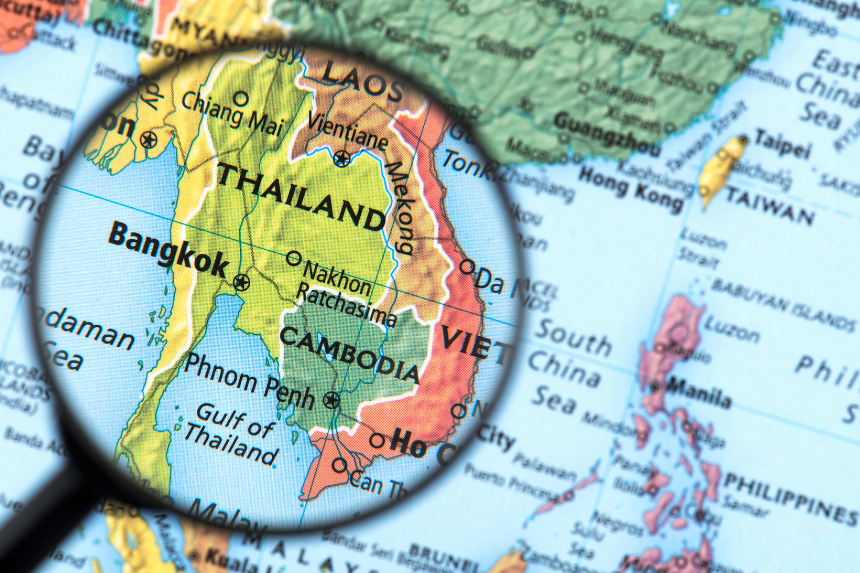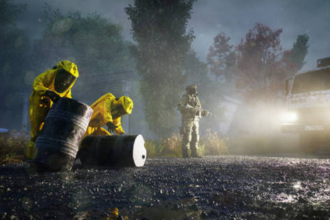The border conflict between Thailand and Cambodia has flared up again, bringing attention to long-standing diplomatic and territorial problems between these two Southeast Asian neighbors. The two countries, which have a largely forested border, have had arguments in the past over who owns what territory. In the past, confrontations have been mostly contained, but recent events show that things could get worse if diplomatic efforts are not put in place quickly. In May 2025, tensions rose after a mine explosion hurt Thai soldiers, and civilians on both sides were killed.
- Why is the conflict at the Thailand-Cambodia border getting worse right now?
- How did personal politics affect the conflict?
- What effect has the conflict had on trade and relations between the two countries?
- Can ASEAN help settle the border dispute between Thailand and Cambodia?
- What will happen to Thailand and Cambodia in the future?
- Final Thoughts
Why is the conflict at the Thailand-Cambodia border getting worse right now?
The most recent outbreak of violence may be traced back to several personal and political issues that have been building for months. After a Cambodian soldier died in May 2025, both Thailand and Cambodia made attempts to calm things down. Military leaders met to keep the peace, but things had already gotten worse between the two nations because a phone call between Cambodia’s leader, Hun Sen, and Thailand’s Prime Minister Paetongtarn Shinawatra had leaked.
In this leaked chat, Prime Minister Paetongtarn called Hun Sen “uncle” and said bad things about one of her military leaders. The violation of trust made people very angry and made their diplomatic relations quite tense. People thought that Paetongtarn’s statements were an attempt to settle their differences by getting to know each other better, but they just made things worse between the two leaders. Here is the link to our article on Border Offensive Risk
How did personal politics affect the conflict?
The Shinawatra family and Hun Sen’s personal history have been a big reason why their relationship has broken down. Both families have worked together on many things over the years, such as trade and political asylum, but the leaked communication showed that there were problems between them. People saw Hun Sen’s choice to make the conversation public as a direct attack on Paetongtarn, which has led to more political conflict.
Both Cambodia and Thailand have problems at home that make it hard to reach an agreement. The coalition administration in Thailand, which depends a lot on the Shinawatra family’s power, is already weak because of problems inside the party. At the same time, Cambodia’s younger leaders, led by Prime Minister Hun Manet, Hun Sen’s son, have not yet established their power, which makes it hard to keep the country’s position in this struggle stable.
What effect has the conflict had on trade and relations between the two countries?
The conflict at the Thailand-Cambodia border has had effects that go beyond military combat. Thai officials are looking into Cambodian businesspeople who are said to be involved in illegal activities, such as running gambling businesses. Trade relations, which used to be worth billions of dollars, have now stopped, which makes things even worse for both economies.
Neither government seems willing to back down as the dispute becomes worse. Cambodia’s ambassador has been kicked out of Thailand, and Cambodia has done the same with its diplomats. Both countries are in a bad spot because of this diplomatic deadlock and the military skirmishes. Here is the link to our article on Confirming Cross-Border Operations
Can ASEAN help settle the border dispute between Thailand and Cambodia?
The Association of Southeast Asian Nations (ASEAN) will play a key role in stopping the Thailand-Cambodia border dispute from getting worse. The purpose of ASEAN is to promote stability in the region and keep its members from fighting with each other. But ASEAN won’t be able to intervene between Thailand and Cambodia until both nations are prepared to talk to each other. The group’s earlier work has been very important in calming down other conflicts in the area, but the leaders’ persistent personal hostility may make mediation more difficult.
What will happen to Thailand and Cambodia in the future?
The confrontation over the Thailand-Cambodia border is expected to keep changing as both countries struggle with economic problems. Cambodia has had a hard time getting back on its feet after the outbreak, and Thailand’s economy is in danger of stagnating, especially with the threat of US tariffs hanging over it. Both governments are having problems at home, so any additional escalation might hurt their economies even more.
But with experienced leaders like Hun Sen and Thaksin Shinawatra in charge, a diplomatic solution may eventually be found. These leaders have dealt with tough situations before, and they might be able to find a way to work together when the time is right. ASEAN’s intervention could help calm things down before they erupt into a full-blown regional war.
Final Thoughts
The battle at the Thailand-Cambodia border conflict is more than just a fight over land. At its heart, it has to do with personal politics, economic pressures, and long-standing historical tensions. To make things better, both countries will need to find a way to get over their disagreements and work together to keep the region stable. ASEAN’s job will be more vital than ever to keep the peace as diplomatic tensions escalate.








